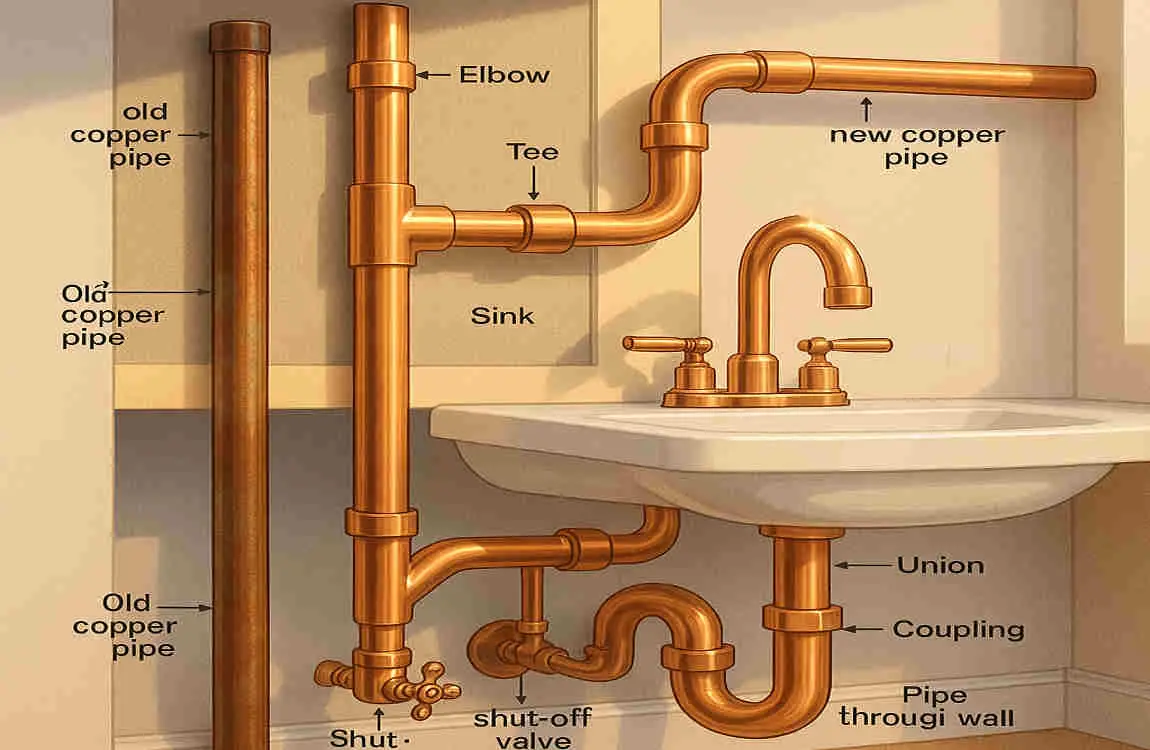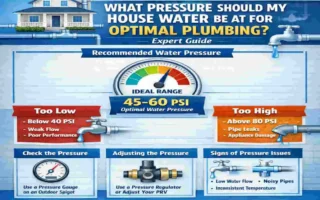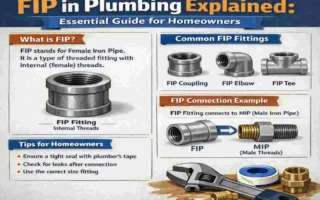Have you ever turned on your faucet only to watch the water drain away at a snail’s pace? Or caught a whiff of something funky coming from your sink? These are classic signs that your plumbing pipes might need some attention. Keeping your pipes clean isn’t just about avoiding annoyances—it’s essential for the overall health of your home’s plumbing system. Clean pipes mean smoother water flow, fewer surprises, and a happier household.
Understanding Your Plumbing Pipes

Your home’s plumbing pipes are like the veins in your body—they carry water where it needs to go and whisk away waste. But just like veins can get clogged, pipes can too. Knowing the basics helps you spot issues early and maintain them properly. Most homes have a few common types of pipes. PVC pipes are the white plastic ones often seen in modern setups. They’re lightweight, resistant to corrosion, and great for both hot and cold water. Then there are house copper pipes, which are durable and have been around for decades. They handle high temperatures well but can be pricier. Older homes might still have galvanized steel pipes, which are sturdy but prone to rust over time. Each type has its strengths, but they all face the same enemy: buildup.
Tools and Supplies Needed for Cleaning Plumbing Pipes at Home
Ready to roll up your sleeves and tackle those pipes? You don’t need fancy equipment—just some basic, affordable tools and supplies. Most of these are already in your kitchen or garage, making DIY plumbing maintenance accessible for everyone. A plunger is your first line of defense against clogs—get a cup plunger for sinks and a flange one for toilets. Then there’s the plumbing snake, also known as an auger, a flexible tool that reaches deep into pipes to break up blockages. For natural cleaners, grab baking soda and vinegar—they fizz away grime without harsh chemicals. Boiling water is great for melting grease, while dish soap cuts through oily residues.
Step-by-Step Guide: How to Clean Plumbing Pipes at Home

Now, let’s get to the heart of it: actually cleaning those pipes. This section breaks down the options into mechanical and natural methods, allowing you to choose the approach that best suits your situation. Whether you’re battling a fresh clog or performing routine maintenance, these steps make cleaning plumbing pipes at home straightforward and effective. We’ll cover everything in detail, providing tips for various areas, such as sinks and toilets. Remember, patience is key—rushing can cause damage. You got this!
Mechanical Cleaning Methods
Using a plunger effectively begins with the right technique. Fill the sink or tub with enough water to cover the plunger’s cup. Place it over the drain and push down firmly, then pull up quickly. Repeat this pumping action 10 to 15 times. The suction breaks up the clog. For toilets, use a flange plunger and add petroleum jelly to the rim for a better seal. It’s messy but works wonders on cleaning clogged pipes. If plunging doesn’t cut it, grab a plumbing snake. This tool is like a long, flexible wire with a hooked end. Insert it into the drain and twist as you push forward. When you feel resistance, that’s the clog—rotate to hook and pull it out.
Natural Cleaning Solutions

First up: baking soda and vinegar. This duo creates a fizzing reaction that breaks down grime. Pour half a cup of baking soda down the drain, followed by half a cup of vinegar. Cover the drain with a cloth and let it sit for 30 to 60 minutes. The bubbles loosen soap scum and hair. Then, flush with hot water. Do this weekly to prevent drain clogs. Timing is crucial—don’t rush the fizzing. For tougher buildup, let it sit overnight. It’s safe for most pipes, but avoid using it if you have a septic system, as it can disrupt the balance of bacteria in the system.
Preventive Measures to Keep Plumbing Pipes Clean
Cleaning is great, but prevention is even better. By adopting simple habits, you can prevent drain clogs and keep your pipes in top shape. Let’s break it down. First, avoid pouring grease down drains. It solidifies and sticks, resulting in significant buildup. Instead, wipe pans with paper towels and toss them in the trash. This small change makes a big difference. Use drain strainers everywhere— in sinks, showers, and house cleaning. They catch hair, food particles, and debris before they enter pipes. Empty them regularly, and you’ll significantly reduce the likelihood of clogs.
When to Call a Professional Plumber

Persistent clogs that return despite your efforts? That’s a sign of deeper issues, like tree roots in sewer lines. Foul odors that linger after cleaning could indicate mold or backups. Leaks around pipes mean potential corrosion—don’t ignore them, as they can lead to water damage.
Professionals utilize tools like cameras for inspections, allowing them to identify problems that are not visible to the naked eye. They clean thoroughly, complementing your at-home efforts.




